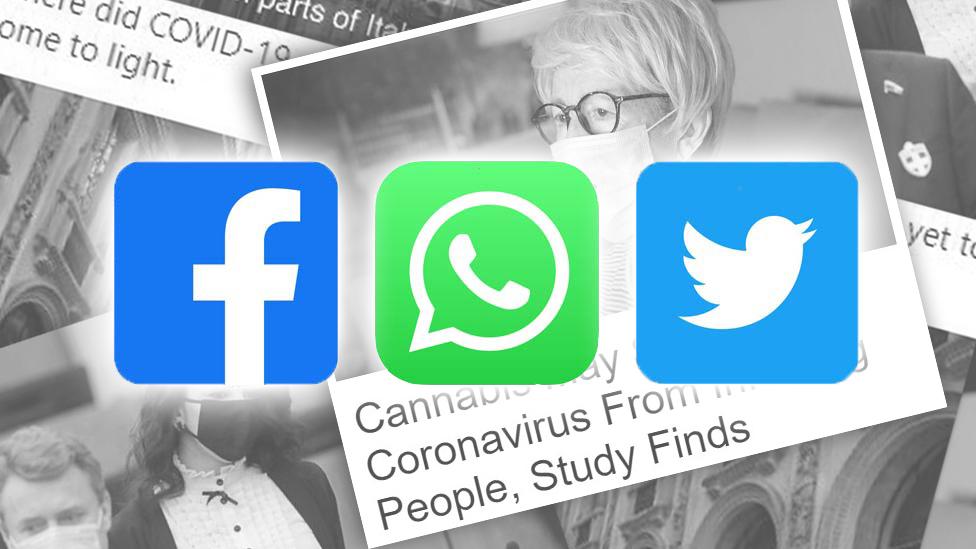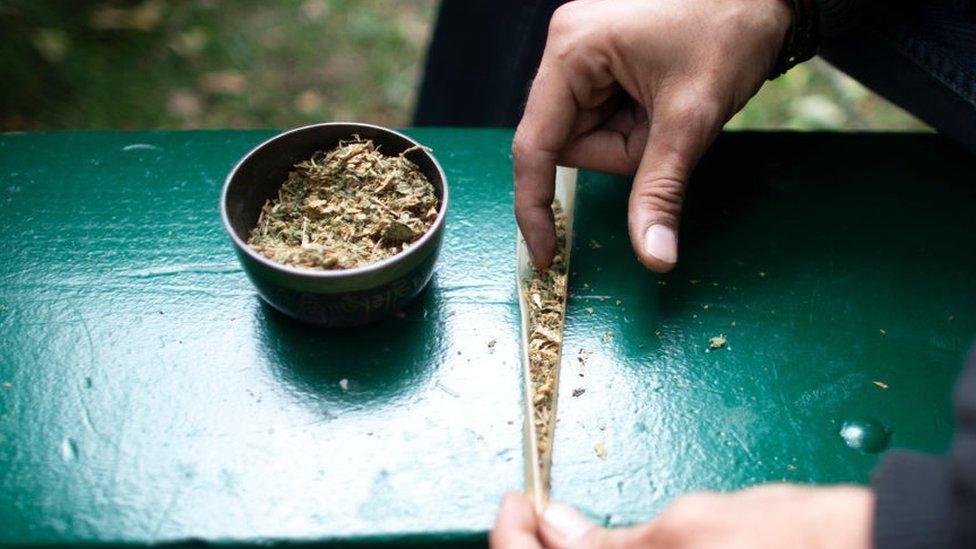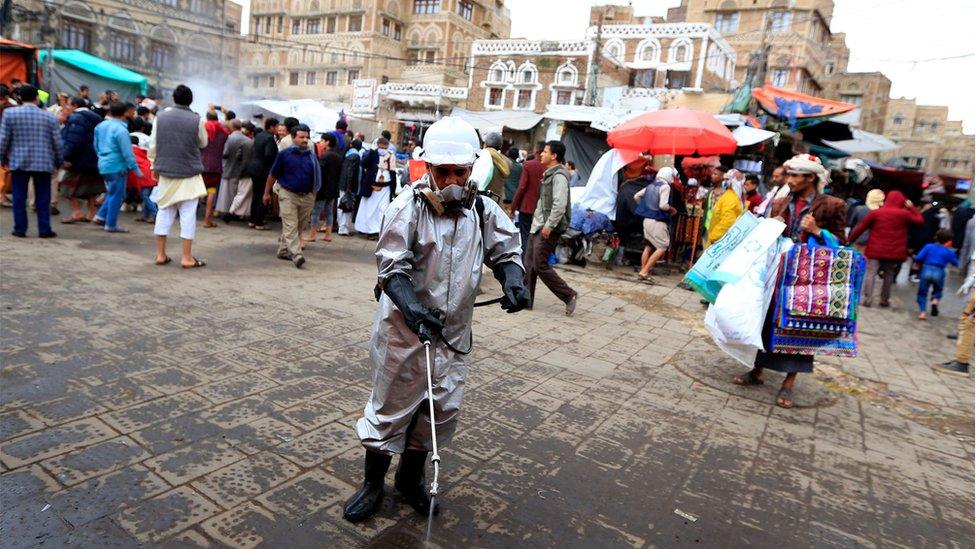Coronavirus: Protective badges and cannabis claims fact-checked
- Published

Social media is awash with posts containing fake and misleading information about the coronavirus pandemic.
We've been fact-checking some of those claims most widely shared this week.

Members of the Russian parliament have been spotted wearing badges that claim to protect the wearer from coronavirus.
Bogus 'protective' badges
So-called "protective" badges which ward off viruses are being sold around the world.
Some of the badges, featuring a white cross design, appear to be of the type falsely marketed as "virus stoppers" in Russia. Some members of the Russian parliament wore them at a recent meeting of the State Duma.
However, the US Federal Drug Administration (FDA) says the substance released by such badges - the bleaching agent chlorine dioxide - is harmful. It says claims that it helps protect against Covid-19 are "fraudulent".
BBC News Russian asked MP Andrei Svintsov why he wore a "virus blocker" badge. He replied that he didn't know whether it worked or not, but he hasn't fallen ill yet.
"I have chewed ginger, and I'm taking Vitamin C. All the rubbish that they say on the internet, I'm using all that. Just in case."
President Vladimir Putin's spokesman, Dmitry Peskov, has been seen wearing a similar product, but last week Mr Peskov confirmed he had been diagnosed with coronavirus and is currently in hospital.
Dr Wayne Carter, a biochemist and associate professor at Nottingham University said the badges could not prevent coronavirus which is "primarily spread in droplets from sneezes... that are inhaled (or possibly ingested) - and that will initiate infection".

It's too early to draw any conclusions about cannabis being effective
Cannabis treatment
Thousands of people have shared articles referencing cannabis as a treatment for coronavirus, but some of the headlines have been misleading.
It's true that there are several trials taking place worldwide, including in Canada, Israel and the UK, investigating whether cannabis could be useful as a treatment.
Medicinal cannabis has been shown to reduce inflammation, external and so could, potentially, be used to treat "cytokine storms" - the dangerous immune response sometimes seen in the sickest Covid-19 patients.
But these trials are at a very early stage, so it's too soon to draw any conclusions about whether cannabis will prove an effective treatment against coronavirus.
One of the articles about a Canadian study has been flagged on Facebook for containing partly false information. An author of this research even told the PolitiFact website that the headline claiming cannabis may stop the virus from infecting people was "an overstatement."
The potential for cannabis to treat various conditions has attracted particular attention in recent years, with mixed evidence.

Virus origin speculation
Speculation about where the new coronavirus first emerged has been rampant online.
We looked at a recent video from a Chinese state media outlet which suggests just because the virus was first reported in China, it doesn't mean that the virus originated there.
The video references an Italian scientist's comments in a US radio interview about unexplained pneumonia cases in northern Italy in November. The narrator says this "could mean the virus was circulating in parts of Italy before the outbreak in China".
"Since early May, China has been increasingly ramping up the rhetoric suggesting that the virus might not have originated in the country," says Kerry Allen, the BBC's China Media Analyst.
There's currently no scientific basis for this idea.
You can date and pin down the source of the coronavirus by tracking its genetic information and how it has mutated over time.
Dr Emma Hodcroft, a molecular epidemiologist at the University of Basel, says it's clear that samples of the virus in the US and Europe can be linked back to the original genetic sequencing in China - but these versions have more mutations because they emerged later.
"In short, there's absolutely no genetic evidence that supports an alternative to the virus originating in China," says Dr Hodcroft.

There has been a surge of deaths from coronavirus reported in Yemen
'Mass execution' claim
Earlier this week, the Yemeni Minister of Information, Moammar al-Eryani, claimed on Twitter that there are "scores of reports" of mass executions of suspected Covid-19 patients in rebel-controlled areas.
He alleged that the killings were sometimes carried out without the patients being properly diagnosed.
Houthi rebels in Yemen have denied claims they have been executing suspected coronavirus patients with lethal injections.
A government spokesman called for an investigation into the mass execution claims.
The Houthis have been fighting the internationally-recognised government for five years, and both sides have accused the other of using propaganda tactics.
The Houthis have said the rumours are the result of a forged document from "the Saudi-US-Zionist alliance of aggression against Yemen" - a reference to the Saudi-led military coalition which has been supporting the government against the Houthis.
We can't get to the bottom of the forged document claims, but no evidence has surfaced to support the accusations about mass executions of coronavirus patients.
More than 100,000 people have died in the civil war, and disease and malnutrition are widespread.
Additional reporting by Alistair Coleman, Olga Robinson, Rachel Schraer and Vitaliy Shevchenko.


